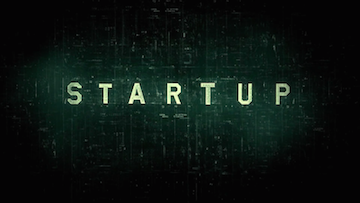
After my FinTech Bloodbath post, there was a really interesting conversation on LinkedIn about the post. Some positive:
Thanks Chris - another excellent article about the fintech landscape. Interesting the article cites 3 type of firms with a positive outlook:
- companies that reduce inefficiencies - solving problems
- create new revenue lines for their clients - getting deeper into their clients wallets
- innovators on the various rails, from firms providing data or ones dabbling in crypto to those that help banks comply with sanctions.
Some negative:
I’m struggling to understand the context here. Chris Skinner you’ve been a (admittedly thoughtful) cheerleader for “FinTech” for five plus years - regularly criticizing the incumbent banks and cheerleading the upstarts. Are you perhaps having your own epiphany here? FinTechs can surely create a better UX with their imagination advantage and lack of technical debt va incumbents (looking at you FIS, Fiserv and Jack Henry). But - banking is hard! Generating real returns on equity require expertise in lending, deposit gathering, fee income etc - perhaps it’s time for all the experts in the field to acknowledge that without a path to profitability that involves, gasp, real banking, the FinTechs have just accelerated change in digital CX?
You can read the whole debate over on LinkedIn where there are many more comments, but it was interesting as the net:net were thoughts about the business models of start-ups. Being a start-up, the business model is never fully-formed at its start. It is an outline of a map of a vision. During the journey towards that vision, the business model and the map changes as you hit bumps in the road. But the core questions should be asked up-front:
- Is this start-up viable?
- Is their vision correct?
- Can they last the long-term, including during a recessionary period?
- Do they have the right leadership and management ethos?
And Most important of all: is their business model robust?
I was intrigued by this as the commentary led me to a post by Ben Soppitt on NYDIG. Quoting from their website: “NYDIG is a bitcoin company that's fusing high tech with institutional-grade finance to usher in a new era of financial products.” Sounds pretty good. However the latest headline is that NYDIG has just laid off a third of their staff as the crypto winter bites. Ben then calls it out:
NYDIG has fascinated and appalled me in equal measure although I am very grateful for opening of so many doors in the #creditunion market. I never understood the $1bn raise and $7bn valuation for a product that at least on the surface is so easily replicable. I never understood why so many specifically bank led VC's piled into the raise either, Credit Unions VC's interestingly stayed well away.
What the possible opportunity is to "refocus" with such a niche product is beyond me. Perhaps it's more on the institutional side which given the background of the founders might make sense …
I personally do not understand the value proposition - only offering a highly speculative and risky asset class and only one example of that seems an unlikely competitive value proposition to the likes of Coinbase and seems to give the impression of promising a get rich quick scheme - wholly at odds to the ethos and principles of community banking.
Ben’s critique is worth a full reading. It sits with a quote I referenced regarding N26’s co-founder Maximilian Tayenthal told the Financial Times that “in all honesty, profitability is not one of our core metrics”. And this story about Marc Lore, founder and chief executive officer of e-commerce start-up Jet.com:
[Marc] shares a story about his teenage daughter, who’s started an online sticker-selling business whose proceeds go to philanthropies fighting celiac disease, an autoimmune disorder. When his daughter recently told him she was making money, Lore says, he was shocked. “How are you profitable?” he asked her.
“Well, Dad, it’s easy,” she replied. “You just make sure your revenues are higher than your expenses.”
“Oh,” Lore recalls saying. “I never really thought about it that way.”
TBH, it is shocking that such naivety is allowed ... but then there are many who are sucked into the Emperor’s new clothes.
The bottom-line is that I grew up where you had to prove your business plan could succeed, achieve its objectives and deliver a profitable return. It has been surprising how many investors lost that view in the fail-fast, learn-fast culture of the last decade. I'm not asking for a robust business plan. Just saying that it would be worthwhile to see if, under the hood, there's anything there.
Chris M Skinner
Chris Skinner is best known as an independent commentator on the financial markets through his blog, TheFinanser.com, as author of the bestselling book Digital Bank, and Chair of the European networking forum the Financial Services Club. He has been voted one of the most influential people in banking by The Financial Brand (as well as one of the best blogs), a FinTech Titan (Next Bank), one of the Fintech Leaders you need to follow (City AM, Deluxe and Jax Finance), as well as one of the Top 40 most influential people in financial technology by the Wall Street Journal's Financial News. To learn more click here...

